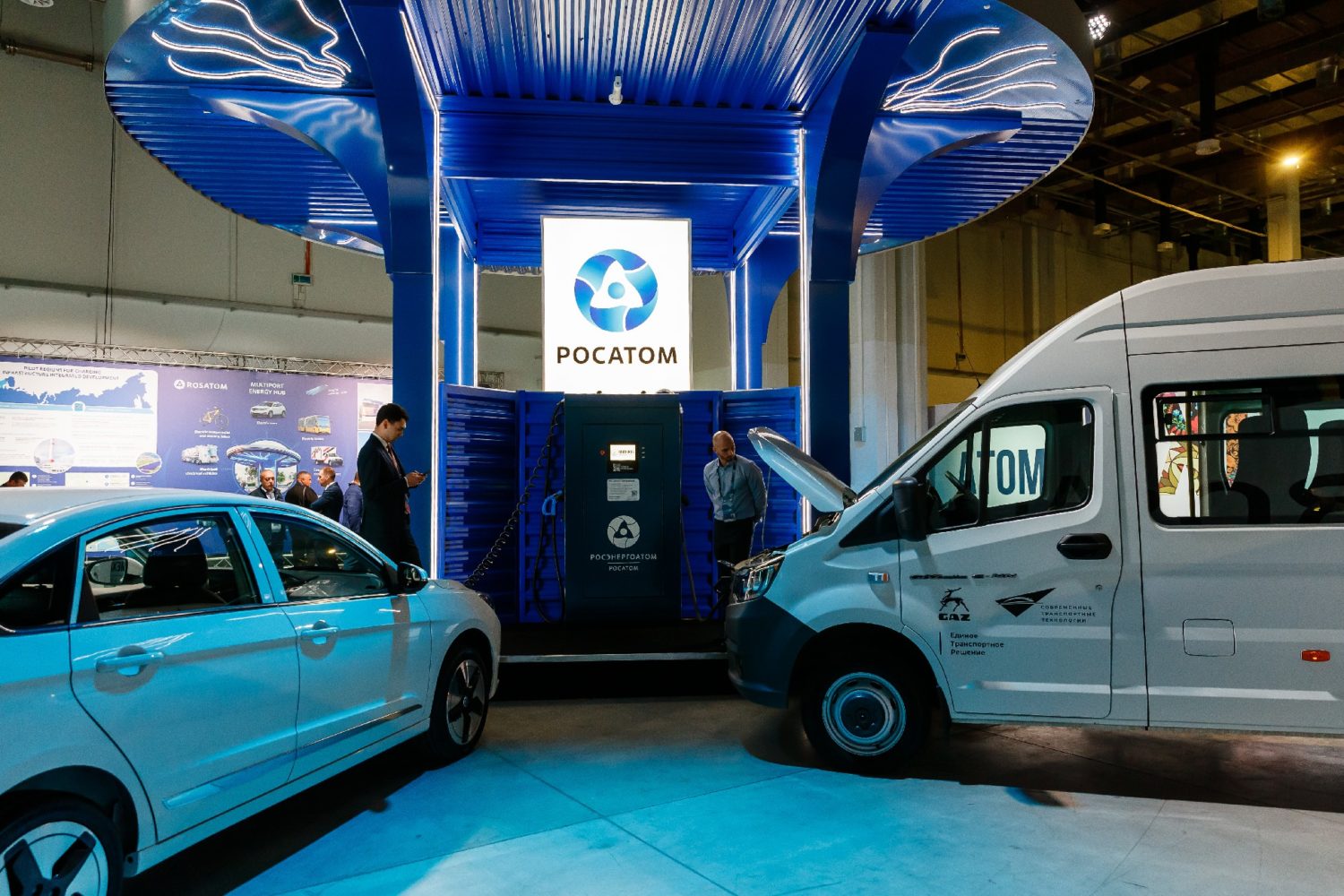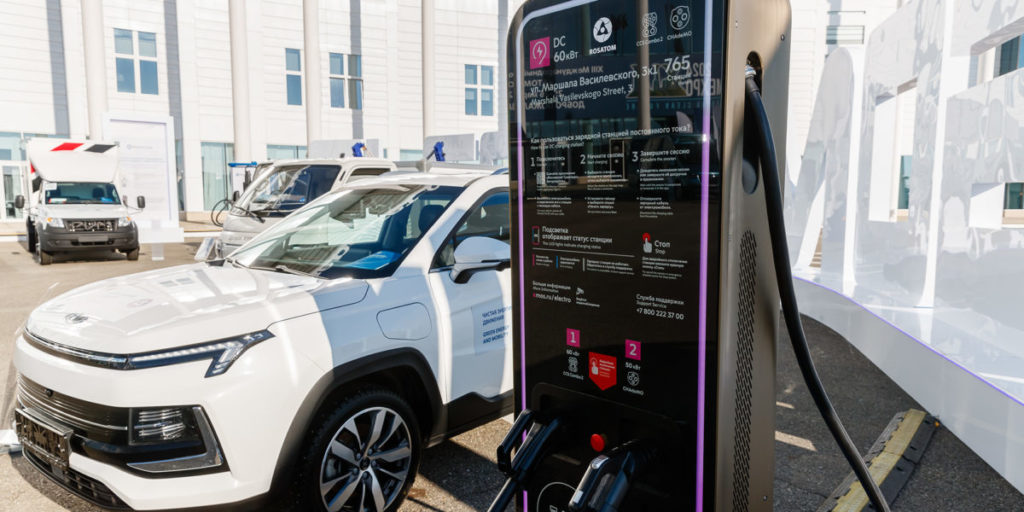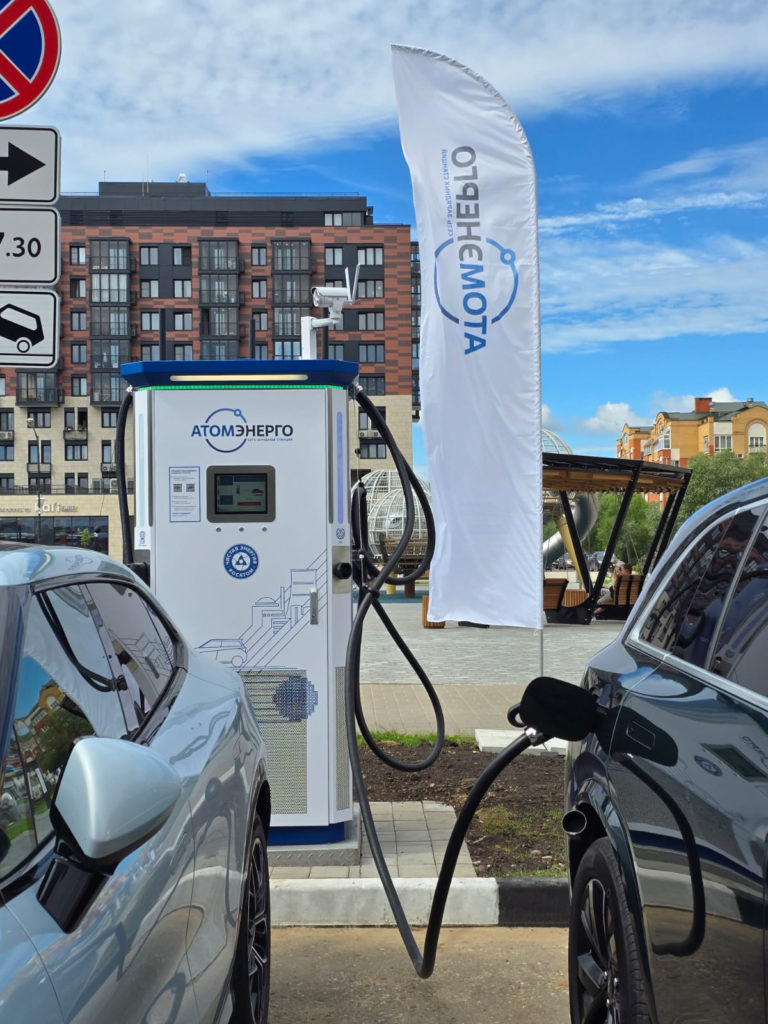
Charging Business
back to contentsAlong with producing or contributing to the production of electric car parts, Rosatom is engaged in deploying the charging infrastructure. The logic is clear: the broader the charging network, including fast and ultrafast charging stations, the more likely it is that people and businesses will favor electric vehicles. Rosatom aims to become a leader in the Russian electric charging market with a share of at least 25 % by 2030.
Rosatom’s electric power division RosEnergoAtom plans to become a roaming operator facilitating the roaming of EV charging services. The decision to enter the electric charging market was taken back in 2019 but little effort was made to push it forward until 2022. Then the situation changed dramatically, and the sector began to evolve at pace.
RosEnergoAtom’s subsidiary AtomEnergo will be the operator of charging stations under construction. The company is establishing contacts with taxi fleets, carsharing and logistics companies, developers, property management companies, and car fleets of federal companies.
RosEnergoAtom is running two charging network construction programs, both scheduled to be completed by 2030. Two charging points were installed in Kaliningrad in 2023, one in Sosnovy Bor, and 89 in Moscow under the two programs.
This year’s latest news has come from Obninsk (Kaluga Region): a network of electric charging stations (ECS) built by AtomEnergo was inaugurated in the city as part of the celebrations dedicated to the 70th anniversary of the world’s first nuclear power plant. With almost 70 charging sessions in the first two days, which is more than at some stations in Moscow, the pilot period showed the interest of city residents in the new EV charging service. Overall, RosEnergoAtom plans to build 292 ECSs this year. “To become a leader in the ECS market, we need to accelerate the deployment of EV charging infrastructure,” says Alexander Khvalko, Deputy CEO and Chief Sales Officer at RosEnergoAtom.
The company aims to expand its charging network beyond Moscow and the Moscow region to cover million-plus cities and major highways in Russia. Regional governments have launched their own programs for the construction of EV charging stations, with costs financed from regional budgets. One of the most attractive locations is the Moscow-Minsk highway, which will be part of the new Silk Road.
Rosatom’s ECSs feature proprietary charging equipment produced by a joint venture between Rosatom’s electrical engineering division and Parus Elektro, Russia’s leading manufacturer of electric charging stations. The joint venture will have capacity for the production of 2,000 ECSs per year. And since Parus Elektro has the widest product range in the country with its ECSs supporting both fast and slow charging, the Russian nuclear state corporation becomes fully self-sufficient in this segment.
RosEnergoAtom pays great attention to electric charging hubs, a combination of charging points and parking lots, which can be equipped with load balancing, power storage and electricity metering systems, transformer substations, etc. Such hubs are best suited for busy highways so that drivers can charge several electric cars at the same time without waiting in lines for hours.

Noteworthy is that RosEnergoAtom is a wholesale electricity market player with stakes in both power generating and distributing companies, so it has the right to enter into direct power supply contracts with charging network operators. Nuclear power plants are officially recognized in Russia to be low-carbon energy sources, so charging sessions at the ECSs supplied with power from nuclear plants are environmentally neutral. This is important for the companies disclosing information about their carbon footprint. RosEnergoAtom is holding talks with local ECS operators to supply their charging points with carbon-free electricity from nuclear power plants.
What is more, the company is able to supply electricity at the most favorable price thanks to the demand-side management and access to the wholesale market. Its ECSs will be branded as ‘Clean Energy Rosatom’.
RosEnergoAtom is also involved in the development of Russian national standards for ECSs. The common standards are essential to ensure compatibility between ECS and EV protocols for a car to start charging.

To address all the challenges, the Digital Energy Association has established an electric mobility center that facilitates standardization and certification, provides support for the development and promotion of electric mobility, studies and adopts best practices from China, the US and the EU.




